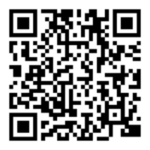Quick Summary
Starting January 1, 2026, the U.S. introduced a 1% remittance tax on certain outbound money transfers funded by cash, money orders, cashier’s checks or any other similar physical instrument.
Good news: Transfers funded through a U.S. bank account, U.S. debit card (excluding general-use prepaid cards), or U.S. credit card are not expected to be subject to this tax. That means that when you fund your transfers using these methods with Pangea, the 1% remittance tax will not apply.
What is the remittance tax?
As of January 1, 2026, the United States has implemented a 1% excise tax on certain outbound money transfers, also known as remittances. This means that when money is sent from the U.S. to other countries using specific payment methods, an additional 1% tax applies.
The tax, part of the “One Big Beautiful Bill Act” passed in July 2025, may be collected directly by remittance providers (such as banks or money transfer companies) and deposited with the IRS.
Who pays the remittance tax?
The sender, the person in the U.S. sending money abroad—is primarily responsible for paying this tax. However, if the tax is not imposed on the sender at the time the transfer is made, the tax shall be paid by the remittance transfer provider. The tax does not affect the recipient, meaning your family or friends will still receive the same amount transferred to them.
What transfers are taxed?
Not all money transfers are taxed. According to the law, the remittance tax affects only transfers made via :
- Cash
- Money orders
- Cashier’s checks
- Other Similar physical instruments (as determined by the Treasury Secretary)
Transfers funded through an account at a U.S. regulated financial institution—for example, when paying with a U.S. bank-issued debit card, credit card, or directly from your U.S. bank account—are not subject to this tax.
What transfers are exempt from the remittance tax?
Many digital transfers are excluded from this new tax, including:
- Transfers funded by U.S. bank-issued debit cards or credit cards.
- Transfers from accounts at U.S. financial institutions subject to Bank Secrecy Act (BSA) reporting, which includes U.S. banks.
- Electronic transfers, such as ACH transactions or bank wires.
If you already send money through Pangea, there’s good news: your transfers aren’t affected when you use a U.S. bank-linked account or U.S. bank-issued debit card or credit card to fund them. The new tax impacts people who pay for remittances using cash-like payment instruments.
When did the remittance tax go into effect?
The remittance tax took effect on January 1, 2026.
Who does the remittance tax apply to?
The remittance tax applies to anyone using cash, a money order, a cashier’s check, or any other similar physical instrument to pay for a remittance transfer.
How is the remittance tax collected?
You don’t need to file anything separately with the IRS. Instead, the remittance provider (bank, money transfer company, or financial institution) collects the 1% tax from you at the time of transfer. They are then responsible for remitting the tax to the IRS.
For example:
- If you send $500 using a cash-like payment instrument to pay for the transfer , an extra $5 is charged as remittance tax.
- If you send $2,000 using a cashier’s check, the remittance tax would be $20.
How to avoid or minimize the tax?
The simplest way to avoid being subject to the remittance tax is to use a digital money transfer service like Pangea and fund your transfers with a payment method that withdraws funds directly from a U.S. bank account either via ACH or debit card.
With Pangea, you can enjoy:
- Competitive exchange rates and low fees
- Fast, reliable transfers to 22+ countries
- Transfers are not subject to the 1% remittance tax when funded through a bank-linked account
Key Takeaways
If you already use digital remittance apps like Pangea, your transfers are not affected when using the right payment methods. The tax impacts those who still use cash-like payment instruments to pay for remittance transfers.
- The U.S. introduced a 1% remittance tax starting January 1, 2026
- Applies to cash-like payment instruments such as cash, money orders, cashier’s checks, etc.
- Digital transfers paid via U.S. bank-issued debit cards, credit cards, or bank accounts) are exempt.
- The tax applies to all U.S. senders (citizens, residents, visa holders).
- For Pangea users, transfers funded through a bank account or bank-issued debit or credit card are not subject to the remittance tax.
Conclusion
Remittances carry special meaning because behind every transfer is a story of families and friends staying connected across borders. Costs matter, and even small changes can impact how much support loved ones receive.
The new tax is one more reason to go digital. By relying on digital money transfer providers and paying with a bank-issued debit card, credit card, or bank account, senders can avoid unnecessary charges, enjoy great exchange rates, and ensure their money reaches family safely and quickly.
At Pangea, we’re here to make the transition easier, helping you use bank-linked payment methods while still enjoying competitive rates and reliable delivery.
Frequently Asked Questions about the U.S. Remittance Tax (2026)
1. What is the U.S. remittance tax?
It’s a 1% tax on certain money transfers sent abroad from the U.S. starting January 1, 2026, when funded by cash, money orders, cashier’s checks, or any other similar physical instrument.
2. Who has to pay the remittance tax?
The sender in the U.S. is primarily responsible for paying the tax. Your family abroad still receives the full transfer amount.
3. Are digital transfers taxed?
Transfers funded with U.S. debit cards (excluding general-use prepaid cards), credit cards, bank accounts are exempt.
4. How can I avoid paying the remittance tax?
The easiest way is to switch to digital transfers and pay with a U.S. debit card (excluding general-use prepaid cards), credit card, bank account. With Pangea, you can send money securely, see your rate and fees upfront, and avoid the 1% tax when you send online with your bank-issued debit card, credit card, or bank account.
5. When did the remittance tax start?
The tax went into effect on January 1, 2026.
About Pangea
Pangea is a trusted digital money transfer platform that makes sending money abroad simple, reliable, and cost-effective. With just a few taps, people can send money to Mexico, the Philippines, and over 22 other countries—delivered directly to bank accounts, debit cards, or more than 70,000 cash pickup locations.
Trusted over 10 million times, Pangea offers a secure, mobile-first experience with low fees, great exchange rates, and fast delivery. Pangea is committed to empowering financial freedom across borders and helping immigrants and cross-border families manage their financial lives with confidence.
DISCLAIMER – This content is for informational purposes only. Pangea and its affiliates do not provide financial, legal, investment or tax advice




